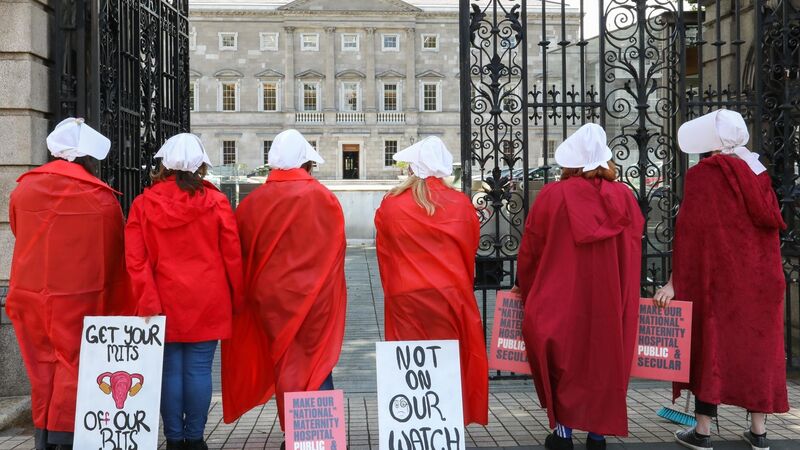Minister's assurances on the independence of a new National Maternity Hospital not enough

Protestors from the Repeal the 8th movement outside Leinster House last month, as they called on Minister for Health Stephen Donnelly to ensure that the National Maternity Hospital will be fully secular, and will be under no Church control. Photograph: Sasko Lazarov/RollingNews.ie
There is widespread public concern that the Catholic ethos will influence governance at the new National Maternity Hospital (NMH).
The events which have given rise to such concerns may be traced back to May 2013 when then Dr James Reilly, Minister for Health, announced that the NMH at Holles Street would be co-located with St Vincent’s Hospital at Elm Park, Dublin. St. Vincent’s Hospital, and the Elm Park site, were owned by St Vincent’s Holdings Group (SVHG), which was in turn fully owned by the Religious Sisters of Charity (RSC). Proximity to St Vincent’s would give swift access to complicated care when needed.













